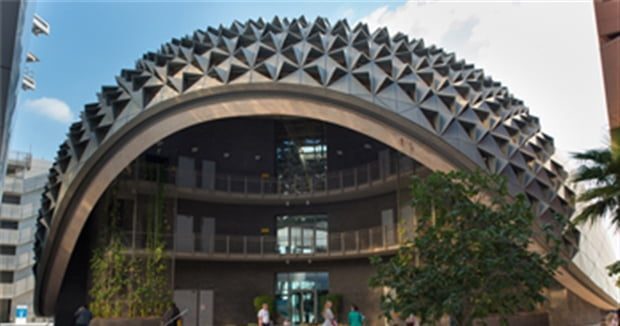Abu Dhabi, UAE: How the world’s smartest cities are re-imagining essential systems to solve the interlinked issues of water, energy and climate while also encouraging economic growth and resiliency will be discussed at next week’s World Future Energy Summit, the Middle East’s largest gathering of international leaders to drive viable solutions to address the world’s pressing energy challenges.
Hosted by Masdar, Abu Dhabi’s renewable energy company, WFES is part of Abu Dhabi Sustainability Week (ADSW), January 17-24, a yearly platform to address the interconnected challenges of energy and water security, climate risk and sustainable development. Since its establishment, ADSW has helped reinforce Abu Dhabi’s position as an international energy hub – a true energy leader, promoting new and traditional sources of power.
“Mayors across the globe are forging ahead with programs and policies that not only make their cities greener, healthier places to live, but also drive economic benefits,” said Mark Watts, executive director of C40 Cities Climate Leadership Group and moderator of the “Cities as Leaders on Climate Action” panel.
Encouraging the growth of smart cities has become one of the central features of WFES. This year’s panel will feature seven leaders from cities and local municipalities around the globe who will present groundbreaking, city-focused sustainability initiatives.
“Cities already account for 75 percent of global CO2 emissions,” said panelist Anthony Mallows, director, Masdar City. “With 60 percent of the world’s population expected to live in cities by 2030, some 5 billion people, the scale of the challenge is clear,
“As the world’s population becomes increasingly urbanized, we need to look at new ways to develop cities as viable living spaces and hubs of economic growth, while also reducing their carbon footprint,” Mallows said. “WFES plays an invaluable role in bringing together policy makers, industry leaders and leading innovators to drive this process forward.”
Masdar City is one of world’s most sustainable communities and an emerging technology cluster in Abu Dhabi. It also hosts the headquarters of the International Renewable Energy Agency and the Masdar Institute of Science and Technology, developed in cooperation with the Massachusetts Institute of Technology.
Watts added, “Our recent research demonstrates the enormous impact cities continue to have in the global climate change conversation – 228 cities across the world have already pledged to cut greenhouse gas emissions by a collective 2.8 gigatons by 2020. That’s about one-fifth of the so-called ’emissions gap’ to get the world on a pathway to avoid run-away climate change.”
Through offering a proactive forum for participants to engage with key clean energy stakeholders, WFES is consolidating its reputation as an enabler of the innovation and investment needed to meet future clean energy challenges. With 2015 designated as the UAE’s “Year of Innovation,” WFES is contributing to the country’s mission to establish itself as a scientific and intellectual leader.
“I am looking forward to participating at WFES to share knowledge about what cities are achieving, but most of all to learn from the great ideas that participants from business, government and other sectors will bring,” added Watts.
In addition to WFES, ADSW also features the third edition of the International Water Summit (IWS) and the second edition of EcoWaste. The fifth assembly of the International Renewable Energy Agency and the seventh Zayed Future Energy Prize Awards ceremony will also take place during ADSW.
Other News
Shaping tomorrow’s cities at World Future Energy Summit14/01/2015
BP supporting Masdar to Offset Carbon Impact of Abu Dhabi Sustainability Week this January13/01/2015
World Future Energy Summit to Showcase Growing Clean-Energy Market in Middle East11/01/2015
ADSW events add extra day to give maximum industry value07/01/2015













